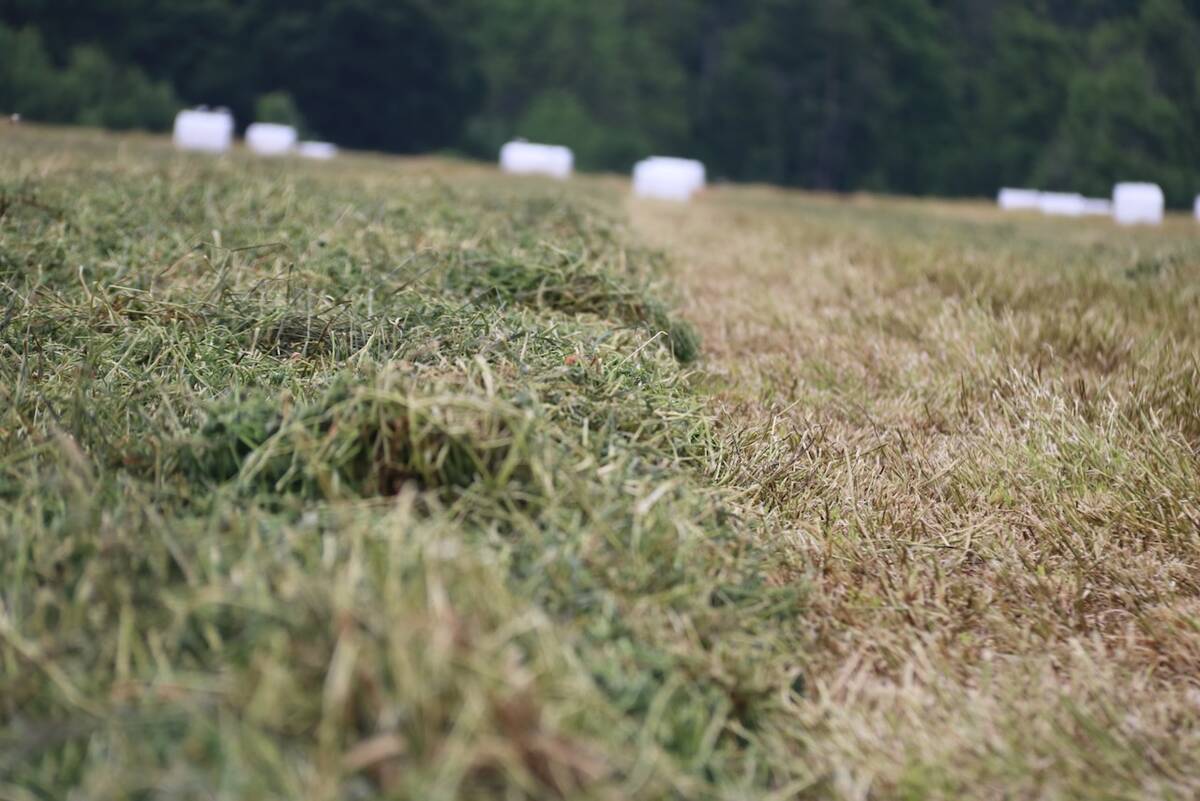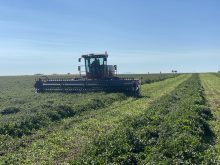Dave Kohl lives by the rules — the rules of farm management he’s been creating and collecting for more than 30 years.
An adviser and speaker for the Royal Bank of Canada (RBC), Kohl is also a university professor and a farmer. He lives in Virginia where he owns and operates a dairy farm and value added business, making and selling milk and ice cream. “I have lived many of these rules,” he said. “Interacting with both large and small farm operators and doing seminars you kind of get a feel for the lay of the land. Some are researched, some are anecdotal.”
Read Also

New high-performance forage training program to launch in 2026
A new Canadian Forage and Grasslands Asssociation high-performance forage program will be a resource for farmers, agronomists and others in the forage sector.
1. Time management
Time management is a factor in the lives of farmers who may also be juggling an off farm job, community commitments and children’s activities. Kohl has a rule for that.
“I find that if you also have full time employment it’s very, very difficult to put in more than a thousand hours a year on the farm or ranch business,” he said.
If you exceed that amount it will usually be to the detriment of your job, the farm, your family life or your personal life.
“Overall, it’s difficult to put more than 3,000 to 3,500 hours total per year into your off-farm job and the farm,” he said.
2. Should I buy the farm?
Buying the farm is a big dream for a lot of folks. Before you take that step, says Kohl, make sure your total debt payments will not exceed 35 per cent of your total net income.
For example, say you or you and your spouse are bringing in $100,000 per year from your farm and off-farm income. You wouldn’t want your annual debt to be more than $35,000. “Once you go above that amount you start putting a lot of stress on your financials and then the lifestyle farm becomes a ball and chain.”
3. The eight out of 10 rule
“If you find that your part time farm is not making you money eight out of 10 years… your hobby’s costing you a lot of money.”
4. Watch the numbers
Learn and remember the 5-5-3 and 10-10-6 rules. Before committing capital to expansion or diversification, Kohl recommends farmers “shock-test” an opportunity by reducing projected cash flow by five per cent, inflating expenses by five per cent and assuming interest rates will rise by three per cent. If it still flies, go for it! Double the shock to 10-10-6 if risk warrants.
5. The five to seven year rule
If farm debt must be restructured more frequently than every five to seven years, it’s time to take a second look. More frequent restructuring affects cash flow, capability to expand as well as retirement and succession plans.
6. The Michael Jordan Rule
Too many people are in too much credit card debt. It is so important to learn to manage credit cards. If you understand how they work you’re in a better position to keep them from working against you. Kohl uses a rule he calls the Michael Jordan rule to emphasize this point.
If you use a credit card to make a $2,000 purchase and if you make minimum payments at 18 per cent interest it will take you 23 three years (Michael Jordan’s number was 23) to pay the balance.
On the other hand if you take that same minimum payment amount and invest it in a mutual fund, 23 years later you will have accumulated nearly $40,000.
7. The 80-60-40 rule
Particularly when you’re in a part time or lifestyle farm situation you must be very goal driven not only financially but also as regards time management.
Eighty per cent of all North Americans have no goals, said Kohl. Sixteen per cent have goals but keep them in their minds. Only four percent actually write them down. But, the four per cent who write their goals down will earn nine times as much in their lifetime.
Working with farm families he will ask a husband and wife to write out their family, business and personal goals separately and bring them to him together.
About 80 percent of the time the goals match but in the remaining twenty percent they will differ.
“I tend to find that real successful part time farms are very goal oriented, focused on where they’re going,” he said.
8. Always be prepared
Cow 7, named after Mickey Mantle whose number was seven doesn’t live on the Kohl farm any more. She doesn’t live anywhere any more because she was the inspiration for the Cow 7 rule.
Cow 7 was a heifer with her first calf who tackled Kohl. Luckily Webster, Kohl’s dog arrived in the nick of time to save the day. Webster distracted the angry young cow enabling his master to scramble to a safe place.
“On a farm you’re often isolated, dealing with machinery or livestock,” he said. “There’s almost a 60 to 70 per cent change you‘ll be disabled. And that’s why disability insurance is imperative for risk management.“
So, does the rule man have a favourite rule?
No. “It takes balance in each one of those areas,” he said. “They’re all equally important. You can’t do one without the other.”
Editor’s note: this article originally ran in “Small Farm Canada.” It is reprinted here with permission. †














